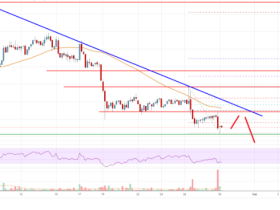When the Ethereum network is preparing to launch the final step of its upgrade, another concern occurs. Heztner, the second-largest platform host based in Germany and the second-largest network operator, has articulated its opposition to certain activities.
Hetzner reaffirmed that it will not permit Proof-of-Stake (PoS) and Proof-of-Work mining activities. According to the network’s t&cs, this would surely affect a number of important aspects of the impending Merge.
Hetzner Defines Service Terms
In a recent conversation, the centralized cloud provider disclosed that it had barred Ethereum customers from utilizing blockchain nodes. In furthermore, Hetzner stated that it will restrict certain cryptocurrency-related activity on the Ethereum network.
Interestingly, nevertheless, the Ethereum organization did not have any of the company’s constraints. The society regarded Hetzner’s action as a danger to the environment of the connection. This is due to the fact that Hetzner hosts over 16% of Ethereum’s nodes.
There is a consensus in the cryptocurrency sector against concentrated service providers. It is viewed as an impediment to the long-term viability of the digital asset industry.
Many have criticized the telecommunications provider’s anti-crypto rules as repressive and inappropriate. In the meantime, Hetzner addressed the legal ramifications of utilizing its resources for crypto-related activity.
According to the corporation’s announcement, any mining operation involving its products is prohibited. This includes the operation of nodes, mining, and the storage of blockchain data and other assets. Additionally, the corporation discussed their permission to power Ethereum, which it conceded is up to strategic change.
The most recent phenomenon reaffirms the drawbacks of centralized service provider collaboration. This measure has an effect on thriving crypto companies seeking to expand their businesses.
54% of all Ethereum nodes are hosted by Amazon.com, which powers the majority of Ethereum’s infrastructure. Moreover, the nodes are currently hosted by Oracle Cloud, Alibaba, and Google Cloud, holding 4.1%, 2.8%, and 2.2% of the nodes, correspondingly.
The Uncertain Future of Ethereum
Since the Ethereum development team disclosed the impending Merge upgrade’s release date, it has been a topic of discussion for some time. Concerning the future of the blockchain network, a number of misunderstandings develop during the conversation.
In addition, numerous erroneous discussions have concentrated on the network’s reduced gas taxes, which has been an annoyance for some time. The move from the PoW consensus algorithm to the PoS consensus protocol benefits the network.
Nevertheless, cutting gas prices has more to do with boosting the capacity of the network. The reduction of transaction costs has been at the top of every investor’s wish list, but this will not occur.
After the Consolidation, it is also important to examine the operation performance of the network. While the shift will increase computation, it may be a minor change that customers do not perceive.
Undoubtedly, the overall outcome of the Ethereum network will change, but to what extent is still unknown. The membership is optimistic about the network’s continuous expansion, but only time will tell for certain.








Leave a Reply